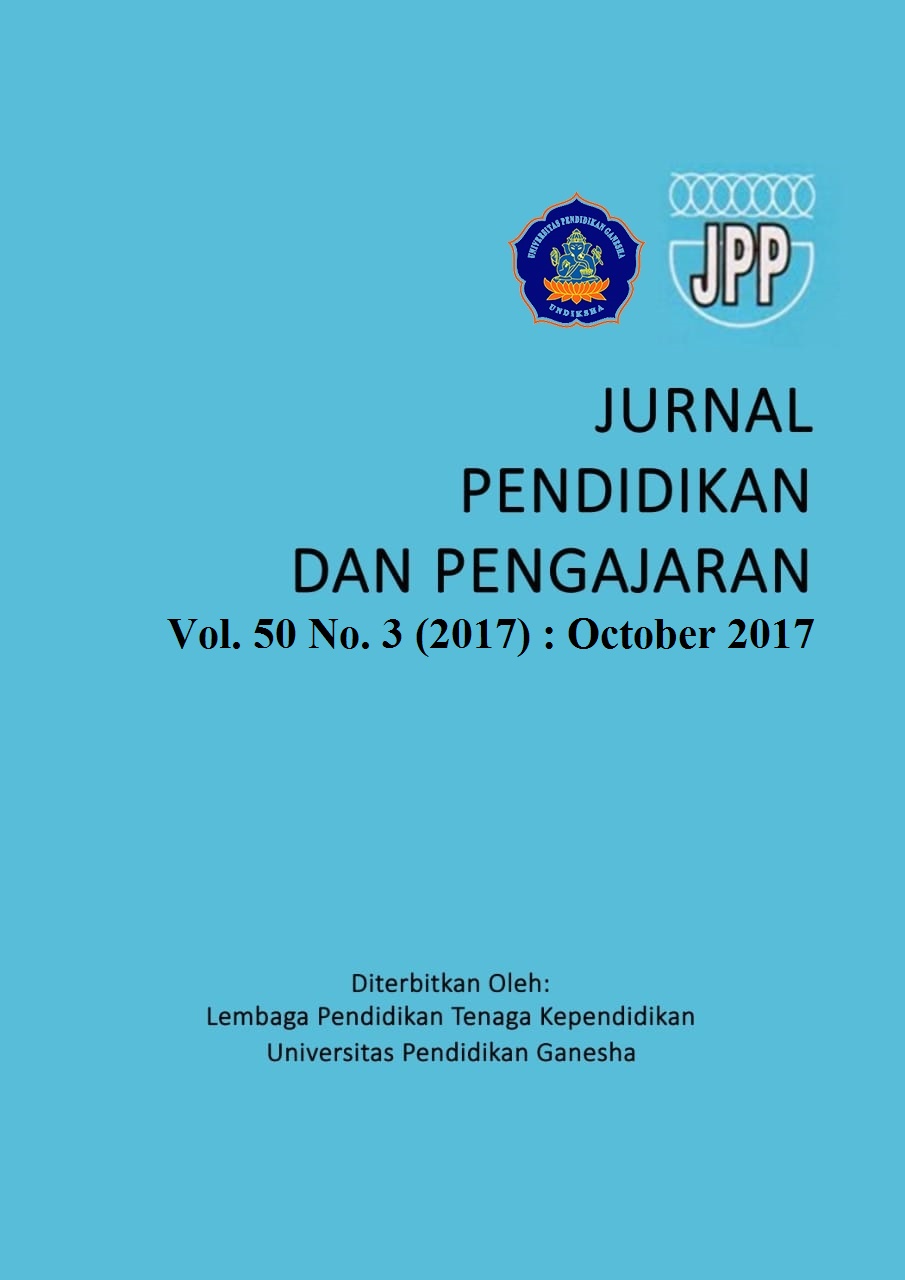THE QUESTIONNAIRE ANALYSIS OF STUDENTS NEEDS TO MODULE OF ISLAMIC RELIGION EDUCATION PROGRAM WITH ANTI-RADICALISM AND ANTI-TERRORISM
DOI:
https://doi.org/10.23887/jpp.v50i3.12523Keywords:
questionnaire analysis, module, anti-radicalism, anti-terrorism principleAbstract
The purpose of this study is to determine students’ needs to the module of Islamic education courses that have principles of anti-radicalism and anti-terrorism. This research is a developmental research. The models and procedures of this research use 4-D (four-D models) development model that consist of four stages: define, design, develop, and disseminate. The data analysis technique used in this research is descriptive analysis describing the result of the module of Islamic education course that has anti-radicalism and anti-terrorism, which has been designed containing the identity of the course, instruction of the use of module for students and lecturers, worksheet for students, answer keys to the work sheet, evaluation sheets, and keys for the evaluation sheets.References
Nasrul. (2009). Pendidikan Agama Islam untuk Perguruan Tinggi Umum Bernuansa Soft Skill. Padang: UNP Press.
Nasution. (2010). Berbagai Pendekatan Dalam Proses Belajar Mengajar. Jakarta: Bumi Aksara.
Prastowo, A. (2012). Panduan Kreatif Membuat Bahan Ajar Inovatif. Jogjakarta: DIVA Press.
Ummah, S. C. (2012). Akar Radikalisme Islam Di Indonesia. HUMANIKA, 12(1).
Wiyani, N. A. (2013). Pendidikan agama Islam berbasis anti terorisme di SMA. Jurnal Pendidikan Islam, 2(1), 65-83.
Downloads
Published
How to Cite
Issue
Section
License
Authors who publish with Jurnal Pendidikan dan Pengajaran agree to the following terms:- Authors retain copyright and grant the journal the right of first publication with the work simultaneously licensed under a Creative Commons Attribution License (CC BY-SA 4.0) that allows others to share the work with an acknowledgment of the work's authorship and initial publication in this journal
- Authors are able to enter into separate, additional contractual arrangements for the non-exclusive distribution of the journal's published version of the work (e.g., post it to an institutional repository or publish it in a book), with an acknowledgment of its initial publication in this journal.
- Authors are permitted and encouraged to post their work online (e.g., in institutional repositories or on their website) prior to and during the submission process, as it can lead to productive exchanges, as well as earlier and greater citation of published work. (See The Effect of Open Access)





